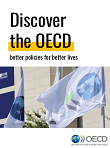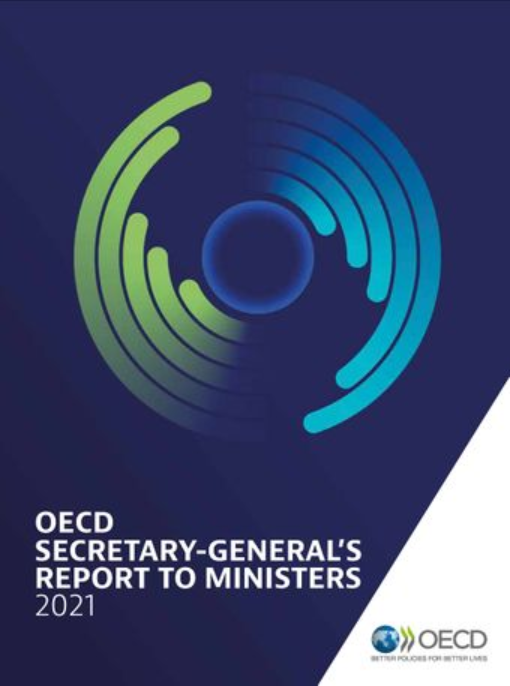Remarks by Angel Gurría, OECD Secretary-General, delivered at the 4th OECD World Forum on Statistics, Knowledge and Policy on "Measuring Well-Being for Development and Policy Making"
New Delhi, Tuesday 16 October 2012
(As prepared for delivery)
Distinguished guests, ladies and gentlemen:
It is my pleasure to welcome you to the 4th OECD World Forum on Statistics, Knowledge and Policy on “Measuring Well-Being for Development and Policy Making”. We are honoured to hold this meeting in New Delhi, in this “Incredible India” that doesn’t cease to amaze us. I can’t think of a better place to have such a Forum. This is a country where remarkable growth in all senses and spheres is posing substantial challenges to policy-making and well-being. There is a lot we can learn from India, and a lot we can contribute. I would like to thank the Indian Government and in particular, the Ministry of Statistics and Programme Implementation, for hosting us.
The crisis: a wake-up call
The subject of well-being is hugely important for the OECD. So important that we have framed our 50th Anniversary on the theme of “better policies for better lives”. Our resolve to put the notion of people’s lives at the heart of our work has been heightened by the experience of the crisis, which has been a wake-up call for us all.
Five years later, and the crisis is still with us. Today, around 200 million people are unemployed worldwide; only in OECD countries, 50 million people are currently unemployed, 15 million more than in 2008. Twelve million of them are youth, raising the prospects of a lost generation with devastating social, human, and economic costs. Many who find themselves jobless have given up searching for work as opportunities are few and far between. Some have lost their homes and many others have seen their savings vanish due to the meltdown in financial markets.
But the legacy of the crisis goes beyond these challenges. The crisis has pulled back the curtain on longstanding income disparities. As we show in our publication “Divided We Stand: Why Inequality Keeps Rising”, the gap in income between rich and poor is now the widest it has been in 30 years. Moreover, governments are confronted with a loss of confidence in their ability to deal effectively with the problems of our day and to make the economy capable of addressing citizens’ needs and expectations. This loss of confidence is all the more damaging as policy makers face complex challenges: not just to overcome weak economic activity and address widespread government indebtedness, but how to make the financial sector more stable and transparent and to address the threat of climate change, development aid, trade, corruption and the eradication of tax havens.
These issues cannot be left unanswered. They need to be addressed now.
Embrace the well-being agenda
Despite its negative consequences, the crisis also offers opportunities. It enables us to learn from our mistakes and discover new ways of thinking. The OECD is committed to meeting this challenge through our recent initiative, the New Approaches to Economic Challenges (NAEC).
Our work on well-being is a significant element of this undertaking. The OECD has been a pioneer in this area. For nearly ten years, in Palermo in 2004, in Istanbul in 2007, in Busan in 2009 and now in New Delhi, in 2012, we have been working to identify better ways to measure the progress of societies, urging policymakers to measure more than economic production, and consider people’s well-being. Through our Better Life Initiative, we put the notion of well-being beyond just GDP, incorporating other dimensions such as the quality of our environment, the health and skills of our children, the strength of our communities and the responsiveness of our institutions. Our understanding of progress also takes into account equity considerations and sustainability.
Last year, we launched our flagship publication, “How’s Life?”. The initiative brings together, for the first time, comparable measures of well-being for all OECD countries as well as for other major economies, including India, China, Brazil, Indonesia, and South Africa. This initiative is about measuring more directly the monetary and non-monetary dimensions that impact people’s lives. It is about developing a compass that goes beyond GDP to include people’s health, skills, security, and subjective well-being. We have also developed a web-based tool (“Your Better Life Index”) to engage citizens at large, allowing users to compare countries’ average performances according to their views on the relative importance of the different dimensions of well-being. The many facets of people’s lives - their needs, their aspirations and their feelings - are now at the centre of policy-makers’ attention.
The good news is that the world is embracing the well-being statistical agenda. Australia now has regular reports on this topic, and others are following suit. Prime Minister David Cameron launched an initiative to develop new well-being measures for the UK. Italy and Austria are developing a scoreboard of indicators. Similar work is taking place in Germany, Morocco, Mexico, Japan – the list goes on and on. We can say today that there is an international agenda on measuring well-being that simply did not exist ten years ago. What a huge achievement!
Implementing the agenda: reaching society and policy makers
The well-being agenda is not only about statistics. There is certainly more to be done in the statistical field. But the critical challenge is for each society to decide on what it values the most. Evaluating well-being requires our fellow citizens to prioritize their values. This is not an easy task. If we want to improve quality of life, what factors should we consider as a matter of priority? Can we agree on fundamental objectives that we can collectively pursue in the long run, beyond the short term horizon of our electoral cycles? These are questions that statisticians alone cannot address.
We need to engage with people: civil society, the business community, organised labour, researchers and ordinary citizens to reach a consensus on the goals that, collectively, we should strive to achieve.
And we need to translate this consensus about fundamental goals into policy practice. Well-being is a multi-dimensional concept; therefore, it needs a comprehensive approach to the design and implementation of policies. The issue is that much of our policy machinery is still based on silos, with each ministry pursuing their own objectives and with Treasuries providing oversights of sectoral policies by looking at impacts on public budgets and GDP growth. This needs to change. We need a whole-of-government approach with the notion of well-being at its core. This requires a better understanding of the interactions, synergies and trade-offs among different policies and well-being dimensions to draw the appropriate implications and provide sound policy advice.
We are encouraged to see the Treasuries of a number of OECD countries taking up this challenge.
Well-being and progress are universally relevant
But well-being and progress are not luxuries of the rich part of the world. The regional conferences that we organised for Latin-America, Asia-Pacific and Africa in preparation of the Forum have taught us that notions of well-being and progress are universal - comprehensible to everyone and everywhere - notwithstanding different cultures, contexts, and levels of economic development. Governments in many emerging and developing countries recognise these concepts as very relevant to their own policies. They are all keen to bring their own perspectives to the table – particularly as we approach the deadline of the Millennium Development Goals and consider the type of framework that should take its place after 2015. We believe that such framework should be based on a holistic approach to development, with the notion of well-being at its core.
Our country host, India, has already started to embrace such approach. Its commitment towards “a Faster, Sustainable and More Inclusive Growth,” already a benchmark in the previous Five Year Plan, helped to break the ground on this topic.
Ladies and Gentleman,
Developing better statistics is not an end in itself, but a means to enhance policies that improve the well-being of people and foster the progress of our societies. These goals should determine what we measure, how measures can be transformed into knowledge, and how this knowledge can inform policy design and decision-making.
The OECD remains strongly committed to delivering sophisticated policy analysis and advice to governments and policy makers that ultimately deliver better policies for better lives. We will continue to do this by integrating and deepening our policy advice to "Go structural, go social, go institutional and go green." These four elements provide the foundations required to restore confidence and promote long-term, sustainable and inclusive growth.
Today, we want to transform our notion of well-being from an implicit to an explicit goal that can be assessed across the whole spectrum of government policies, business strategies and individuals’ decisions. Only then can we say that we have been successful in placing the notions of well-being and progress at the core of policy-making. Only then can we design, promote and implement better policies for better lives.
Thank you.

